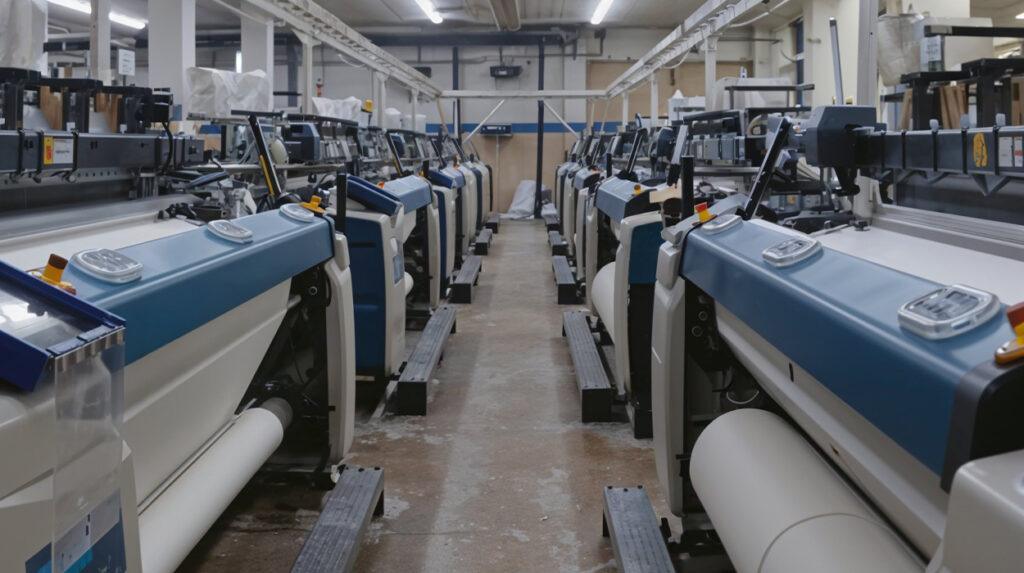Innovation is the backbone of the textile industry. It has always been the driving force behind economic growth in Pakistan. As the largest contributor to the country’s exports and industrial workforce, the textile industry must continuously evolve to remain competitive in the global market.
According to the research, Pakistan’s textile sector contributes nearly 8.5% to the country’s GDP and makes up 60% of total exports, highlighting its critical role in economic growth. Global textile exports are expected to reach $1.3 trillion by 2030.
With rapid advancements in automation, artificial intelligence, and digitalization, textile manufacturers worldwide are revolutionizing their production processes. However, in Pakistan, while the industry holds immense potential, innovation has often been hampered by outdated machinery, limited R&D investment, and a lack of digital transformation.
The question is no longer whether Pakistan’s textile industry should innovate, but rather how swiftly it can adopt these advancements to secure its place in the global textile hierarchy.
This report delves into the technological evolution of Pakistan’s textile sector, exploring the groundbreaking advancements reshaping the industry, with a particular focus on Acme Textiles—a leader in innovation and transformation.
Technological Advancements Driving Innovation in the Textile Industry
The modern textile industry is undergoing a technological revolution, redefining efficiency, precision, and sustainability. From raw material processing to the final product, automation, and digitalization are reshaping every aspect of textile manufacturing.
1. Advanced Machinery and Automation
Traditional power looms and manual weaving processes are rapidly being replaced by state-of-the-art air-jet looms, which offer faster production speeds, higher fabric quality, and reduced energy consumption. Computerized knitting machines ensure precision in fabric patterns, while automated dyeing and finishing systems enhance color consistency and minimize water waste. Robotics and IoT-enabled machinery are also streamlining production lines, reducing human error, and improving overall efficiency.

2. Artificial Intelligence (AI) in Quality Control
AI-powered vision systems are transforming quality control by detecting even the smallest fabric defects in real time. Machine learning algorithms analyze vast amounts of production data to predict maintenance needs, preventing costly downtimes. AI-driven predictive analytics are also helping manufacturers optimize resource allocation, ensuring maximum efficiency with minimal waste.
3. Blockchain for Supply Chain Transparency
In an industry where ethical sourcing and sustainability are becoming major concerns, blockchain technology is playing a pivotal role. By implementing blockchain-based tracking systems, textile manufacturers can ensure full transparency across the supply chain, from raw material procurement to final delivery. This not only strengthens consumer trust but also helps brands meet stringent international compliance standards.
4. Digitalization and Smart Textiles
Digitalization in textile design, including 3D fabric simulation and virtual prototyping, reduces the need for physical samples and accelerates the product development cycle. Additionally, ERP (Enterprise Resource Planning) systems and cloud-based manufacturing solutions are enhancing workflow management, making production more agile and data-driven.
Acme Textiles: Pioneering Innovation in Pakistan’s Textile Industry
As Pakistan’s textile sector faces growing competition from global players, embracing these technologies is no longer optional—it is essential.
Acme Textiles is at the forefront of Pakistan’s textile industry, utilizing cutting-edge technology in its operations while exploring the potential of artificial intelligence, and digital automation for future advancements. From high-speed air-jet looms that enhance production efficiency to AI-driven defect detection ensuring impeccable quality, Acme is setting new benchmarks in innovation. It’s predictive analytics and IoT-enabled smart factories optimize manufacturing.
Acme produces ultra-soft yet durable bed linens, plush towels, and high-thread-count sheets that meet the rigorous demands of the hospitality sector. AI-powered defect detection ensures every product meets premium standards, while automated dyeing and finishing processes enhance fabric longevity and color retention. The company is also leading in smart textiles, developing nano-enhanced fabrics and sensor-embedded materials for high-tech applications in sportswear, healthcare, and beyond. With a commitment to sustainability, efficiency, and advanced automation, Acme Textiles is not just transforming local manufacturing—it’s shaping the future of the global textile industry.
Conclusion
Acme Textiles is redefining the standards of hotel linens and textiles by leveraging cutting-edge technology, digital transformation, and sustainability-driven innovation. Through advanced weaving technologies and eco-friendly manufacturing, Acme ensures that hotels receive products that not only enhance guest satisfaction but also contribute to long-term operational efficiency. As the hospitality industry evolves, Acme Textile remains committed to delivering luxury, performance, and sustainability, making it the preferred partner for hotels worldwide.
Partner with Acme Textiles Today
Upgrade your hotel’s linens with the latest in textile innovation. Partner with Acme Textiles for premium-quality hotel supplies, trusted by leading hospitality brands worldwide. Contact us today to experience the difference in comfort, durability, and efficiency. We deliver globally—bringing excellence to every corner of the world.

